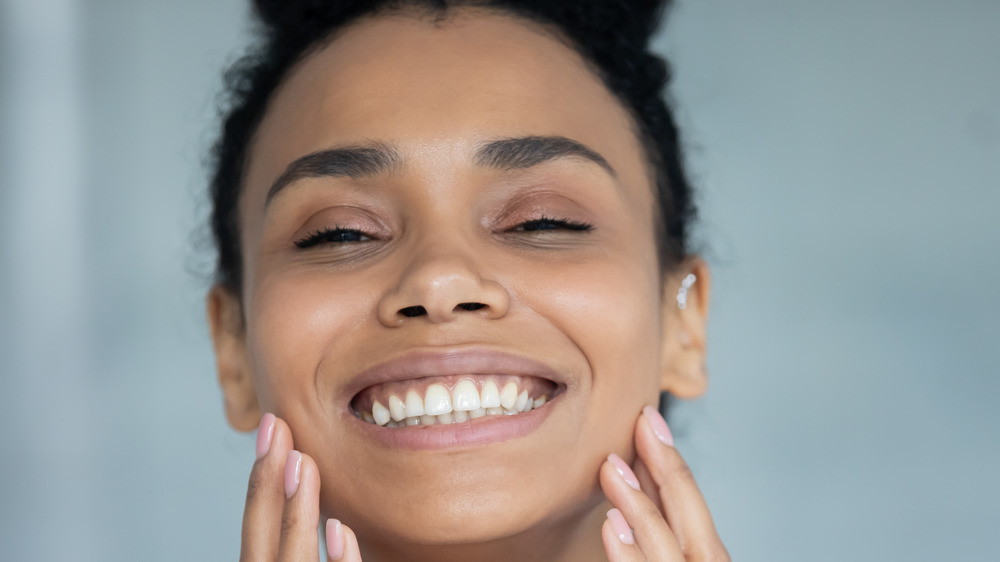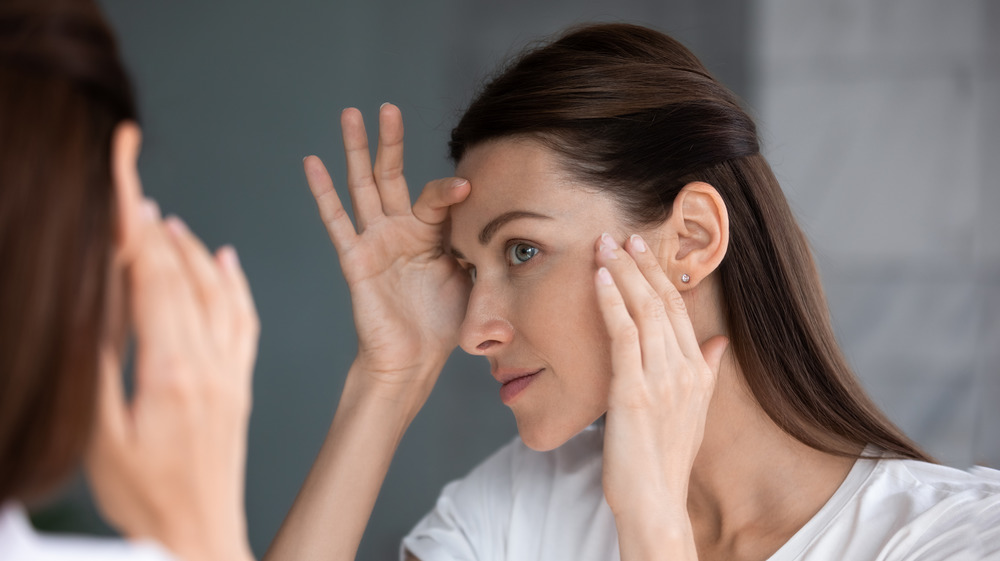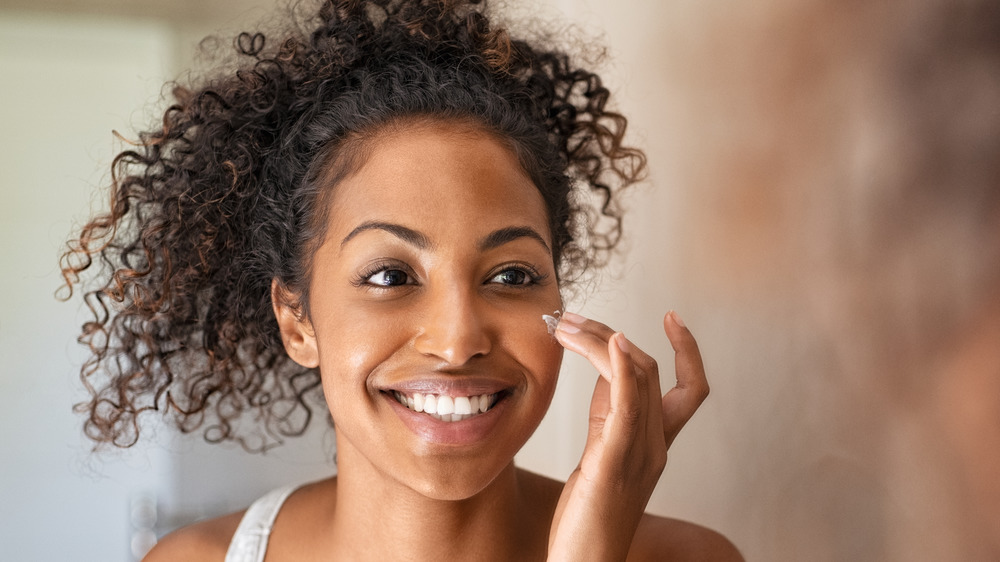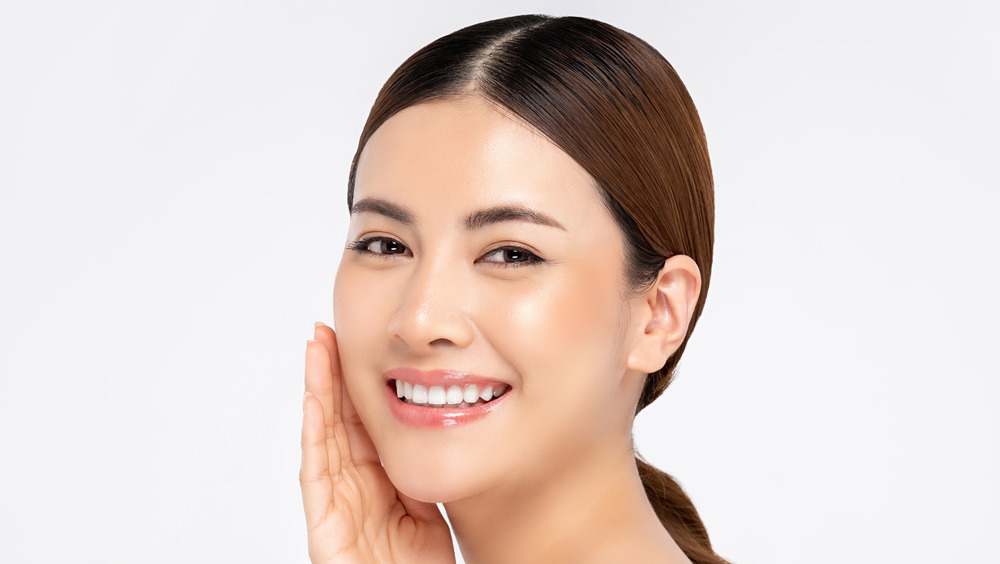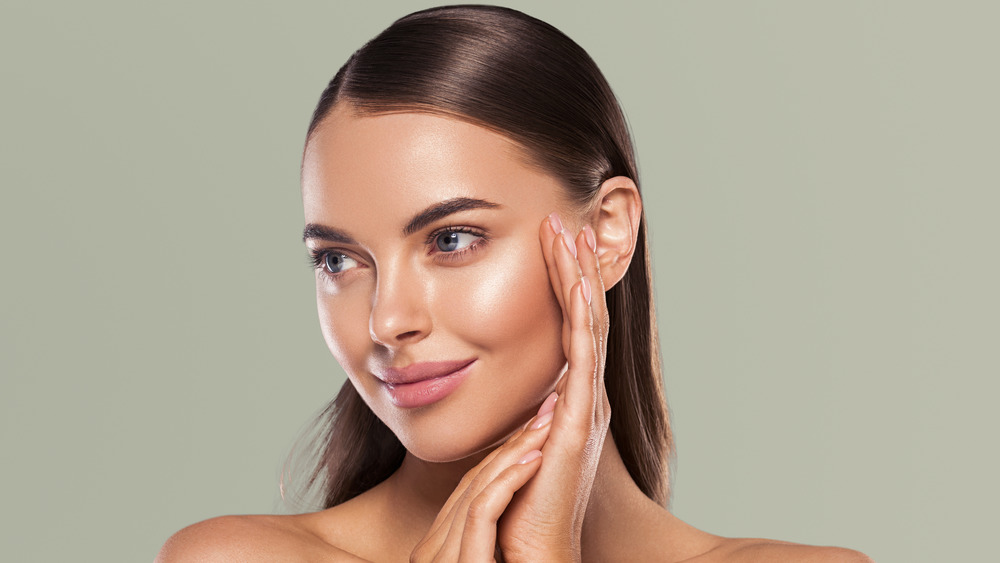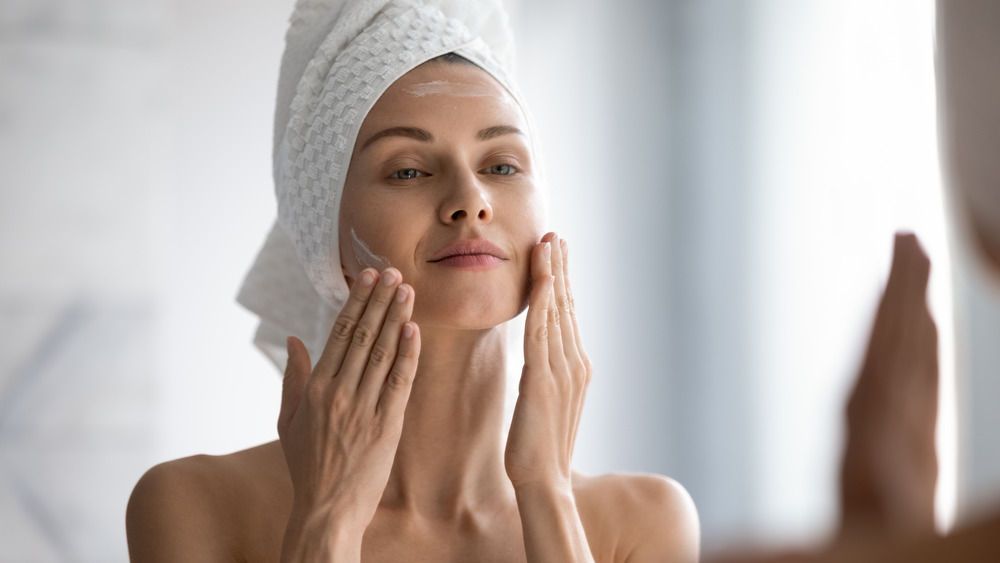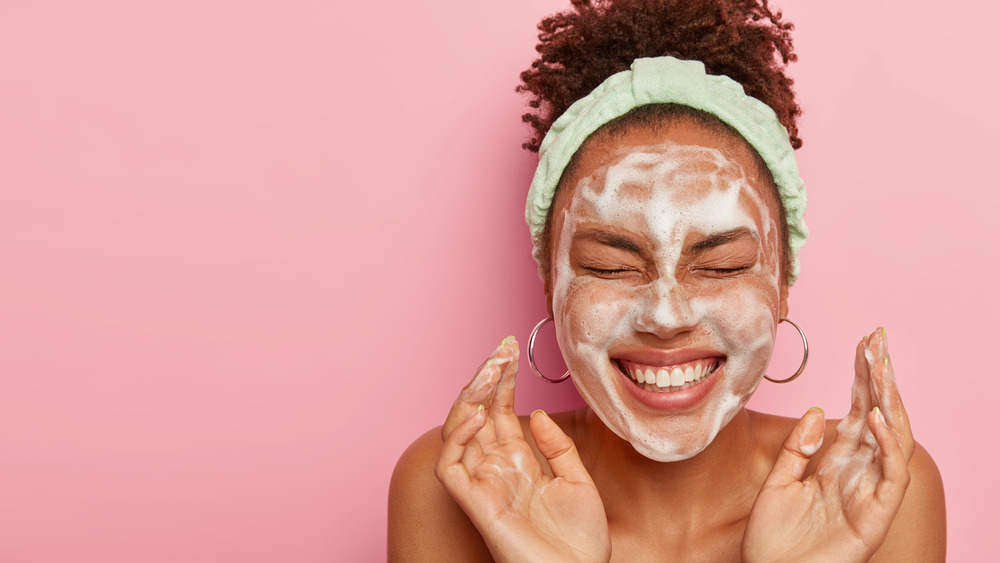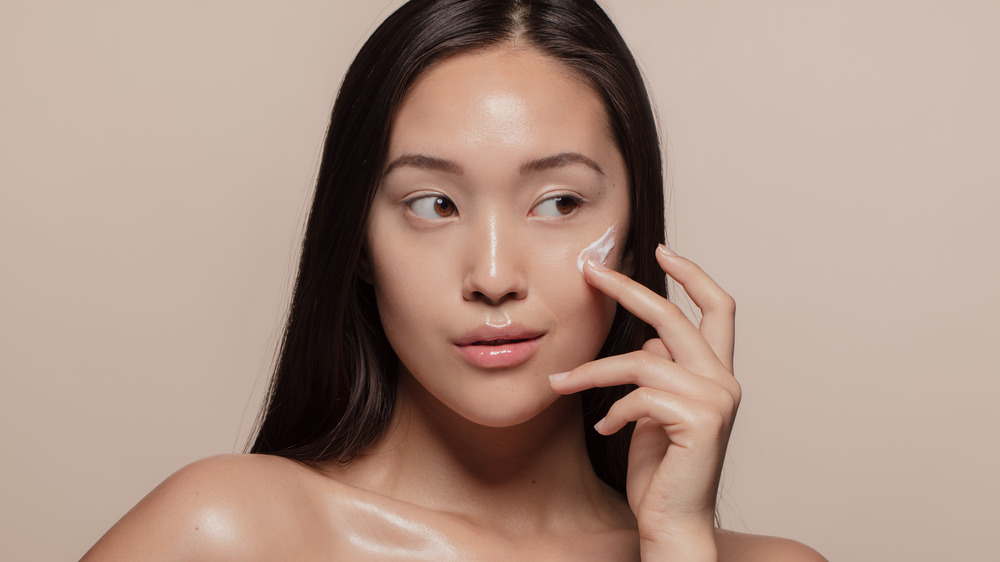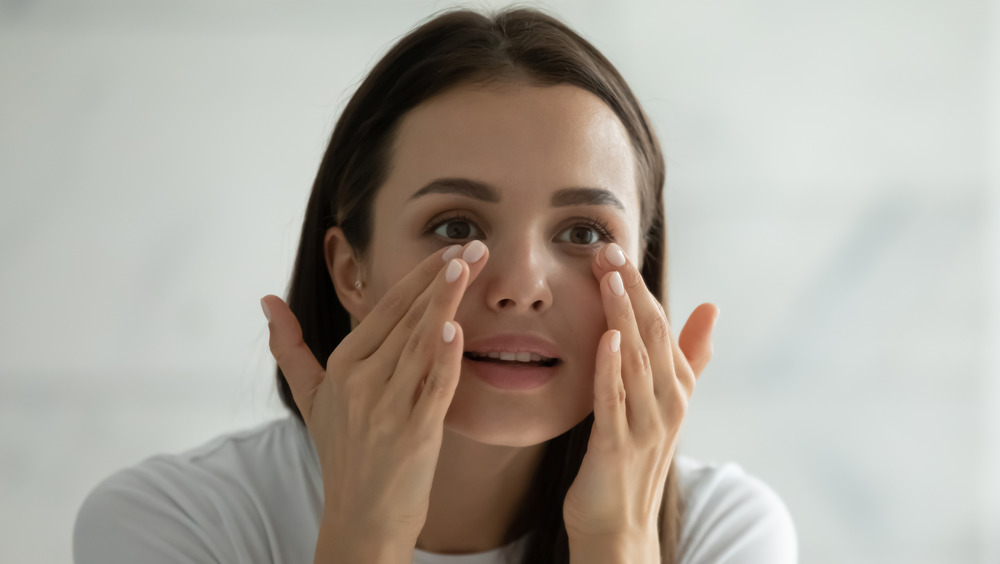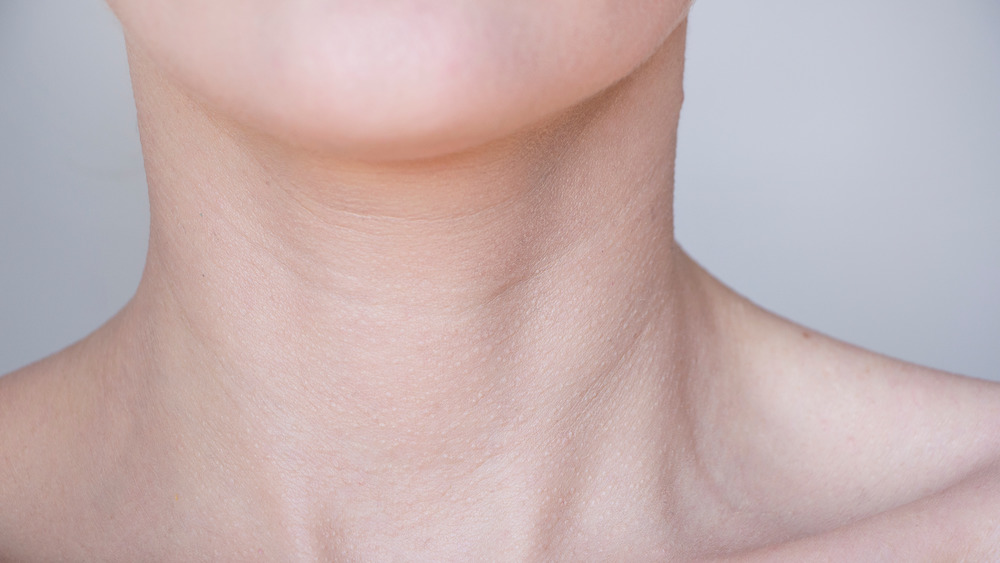What Really Happens To Your Skin After Age 25
While skincare is an important issue for many people all over the world and of all ages, it's extremely unique to each individual; some people have oily skin, while others have dry skin, and a few will have combination skin. Well, with all those different types of skin comes different concerns, priorities, and problems.
As you've grown up, you might have dealt with acne during certain periods of your life, while in the next year you faced dry or red patches on your face. To that end, your skin truly requires a ton of attention and care, no matter what kind you may have.
But one thing remains the same for everyone, no matter what your skin type: as you get older, it changes. Specifically, what really happens to your skin after age 25 is pretty interesting, and it might change the way you take care of your skin. As odd as it might sound, you might need to completely revamp your skincare routine once you turn 25, and your skin will thank you for it.
Your skin starts to age after age 25
For as young as 25 might feel, it's actually quite the turning point for your skin. Sure, you might still be in your twenties, feeling young and free, but your skin is undergoing a ton of changes. Specifically, when you turn 25, your skin literally starts to age, for a variety of reasons.
Dermatologist Dr. Loretta Ciraldo told Marie Claire that your skin's propensity towards aging after 25 could have a lot to do with how you take care of it. "I attribute this to the external factors that are aging us faster and at younger ages, including pollution, visible light, and even irritants often from the multiplicity of products we are 'experimenting' with, which leads to irritation and in turn to collagen breakdown among other unwanted skin aging changes," she explained. Fortunately, while your skin will most definitely begin to age at 25, once you hit that milestone there are things you can do to minimize the aging process. Talk to your doctor to see which course of action is best for your unique skin type.
Sun damage can have an impact on your skin after age 25
While you were growing up, chances are you were taught to put on sunscreen while at the beach, by the pool, or just while spending a long day in the sun. But really, it's important to protect yourself from the sun's harmful rays every day. The reason? Throughout your twenties, and especially after you turn 25, sun damage starts to have a more significant impact on your skin, especially in how fast your skin ages. So, with that said, after 25 it's important to protect your skin from the sun more than ever before.
As Dr. Elizabeth Hale, a professor of dermatology, told Byrdie, the "sun is the number one cause of external skin aging, and people should care about this level of sun exposure since it's not always thought about on a daily basis." Hale also added that the sun "contributes to premature skin aging," especially throughout your twenties, which is why it's so important to start using an SPF in your twenties, and by 25 at least.
Spots on your skin won't fade as quickly after age 25
Before you turned 25, you might have popped a pimple or ignored discoloration without a second thought. Honestly, it's kind of satisfying to squeeze a pimple, but the scarring that can come afterward obviously isn't very desirable. And the thing is, as your skin changes after age 25, it doesn't handle that kind of thing as well as it used to; because of a decrease in elasticity, spots won't fade as quickly after you turn 25.
Dermatologist Dr. Mona Gohara told Self that your skin just doesn't turn over new cells as quickly after you turn 25. "In your twenties, you may recognize that some of the things that used to fade down, like freckles or discoloration, doesn't," she explained. So, stop popping every pimple you find and consider using products aimed at treating discoloration once you turn 25. Seriously, your skin needs all the help it can get, because blemishes and dark spots won't be fading without a fight anymore.
You might notice an uneven skin tone after age 25
One of the biggest issues people face when it comes to their skin as they get older is dealing with an uneven skin tone, and it might surprise you to know that that can start to happen when you turn 25. Seriously, start investing in some high quality vitamin C serums because you'll probably start to notice an uneven skin tone in the latter half of your twenties.
Alissia Zenhausern, a naturopathic physician, told Brit + Co that after you turn 25, or anytime in your mid-to-late twenties, you could see more dark spots and patchy or uneven skin tones. "During your mid twenties, your skin, which used to turn over cells very quickly, starts to slow down," Zenhausern shared. "This means that dead cells can build up more easily on the surface and can cause discoloration." So in order to avoid that, try using products to fight signs of aging, as well as moisturize your skin on a regular basis. That way, the dark spots might start to fade and your skin will look plump, despite its aging nature.
Your skin might become thinner after age 25
While the concept of "glass skin" might sound intriguing, having skin that's actually so thin that it's sheer is a completely different prospect, and one that isn't very enticing. You see, as you get older, your skin starts to get thinner, and once you hit 25, you might even take notice of this change. Yes, according to Healthline, your skin can and does actually get thinner as you age. And, according to Self, your skin starts to show signs of aging at 25, and as it ages, it can be thinner.
Dermatologist Dr. Amy Perlmutter spoke to Self, and explained that, "The production of collagen starts to decline, leading to thinner skin." Additionally, according to Healthline, there are other factors that can contribute to thin skin, such as genetics and how much collagen your skin continues to produce. You can definitely try to avoid thinning skin by changing your diet or adding in new skincare products, but don't get too worried if you see your skin has thinned, because it's totally normal with age.
You can start to get wrinkles and fine lines after age 25
Wrinkles might seem like something you don't have to worry about until you're a grandparent, or at least retired, but that's not the case at all. In fact, you can start to get wrinkles and fine lines throughout your twenties, especially after you turn 25. Dermatologist Dr. Michele Farber of Schweiger Dermatology Group told Bustle that, "Dynamic wrinkles begin in the late twenties to early thirties," so don't be surprised when you see a few lines and wrinkles on your face after you hit 25. It's totally normal, though there are some things you can do to prevent it.
What's more, even just being more expressive with your face can make you wrinkle more, and quickly. Dermatologist Mary Sheu told HuffPost that not frowning or squinting can help prevent fine lines and wrinkles. "It can be helpful to try not to move your face as much," she explained. "If you make a conscious effort to not furrow your brows, you can probably slow down that process." Hey, looks like its time to break out that resting b*tch face, huh?
Your skin may start to dry out after age 25
If you've dealt with oily or acne-prone skin for most of your life, then the idea of dealing with dry skin instead might sound intriguing and appealing. However, as you get older, and after you turn 25, your skin might dry out. The reason? It can't retain moisture as well anymore; plus, there are some other issues at play that can make it harder to keep your skin plump and moisturized.
According to Byrdie, your hormones can actually have a huge impact on your skin, especially around that certain time of month. Specifically, before your period, your hormones can fluctuate quite a lot, leading to overactive sebaceous glands which cause breakouts; additionally, more progesterone in your body causes dehydration. All of this is only compounded by the issue that as you get older, specifically past 25, your skin ages more and more, causing it to become even more dry than it already was. Time to drink more water!
After age 25, certain products shouldn't be used on your skin
Your skin is constantly changing, so especially after you turn 25, there are certain products that really shouldn't be used on your skin anymore. And as shocking as this might be, even if you still have breakouts or suffer from acne, you shouldn't use some of the products that you did before age 25.
As dermatologist Dr. Dennis Gross told Byrdie, you can't use the same super strong anti-acne products that you once did as a teenager or even into your early twenties. "You may not see it, but at this phase in your skin's life cycle, your oil glands are starting to shrink — making anti-acne and mattifying products that were once effective cause redness, flaking, and irritation," Gross said. Sure, you might still get pimples past 25, but instead of rushing to the drug store to get over-the-counter products, you might want to consider a prescription specifically made for your kind of acne so as not to irritate your skin. After 25, you're at a greater risk of those products doing more harm than good, so just steer clear of them.
Your skin won't retain as much moisture after age 25
Because everyone ages differently, there's really no way to know just how much your skin will start to show signs of aging after you turn 25. However, one thing you can definitely count on is developing dryer skin. That's because part of what happens to your skin as it ages is that is loses moisture, as well as the ability to retain moisture. So after you turn 25, you need to work harder to keep skin moisturized, and there are certain things you should keep in mind to do so.
According to an interview with Byrdie, dermatologist Dr. Dennis Gross said that, "It is imperative that you incorporate a moisturizer with humectants to help the skin absorb and retain moisture." Specifically, Gross told the publication that the best moisturizer is hyaluronic acid as it's already in your body, so it's "compatible with the skin and doesn't cause breakouts, which can still be a concern during this decade."
Moisturizing is so important for everyone's skin, especially after you turn 25, so don't skip out on it.
A lack of sleep will start to affect your complexion after age 25
At any age, sleep is obviously important for your overall health. It keeps you feeling rested, reduces stress, and helps your body function properly. But especially after you turn 25, how much sleep you get can have an impact on the quality of your skin.
According to Cosmopolitan, since your skin already starts to age after you turn 25, a lack of sleep will only make things worse. Specifically, while you sleep, your skin can heal itself, so when you don't sleep it doesn't get that chance. So if you're staying up too late or skipping your nap, you can develop both a duller complexion and dark circles around your eyes, and that will make you look even older.
That's not all, though. A 2017 study in the journal Royal Society of Open Science literally concluded that a lack of sleep not only "affects facial appearance negatively," but it also literally "decreases others' willingness to socialize with the sleep-restricted person." So, if you want to reduce signs of aging after you turn 25, invest in some comfortable bedding and get to sleep.
Your acne may be different after age 25
If you've ever struggled with acne at any point in your life, you know just how frustrating it can be. Sometimes it feels like nothing will get rid of your breakouts and it's totally out of control. Unfortunately, if you just managed to learn how to deal with your acne and then turned 25, it will probably change on you. Acne after the age of 25 is considered adult acne, according to Harvard Medical School, and it works differently than adolescent acne.
While adult acne can still be caused by too much oil being produced, clogged pores, inflammation, and excess bacteria, there are other factors that go into adult acne as well. Things like your hormone levels, certain products or medications you might use, and even your diet can all contribute to adult acne. So as you get older, it's important to become more aware and conscious of those things as they can make your adult acne flare up.
You'll need an eye cream after age 25
As far as skincare products are concerned, there are a few staples that people incorporate into their skincare routine. Obviously, you need a good cleanser to wash your face, probably a toner to help balance your skin, serums to keep your skin healthy, and definitely a moisturizer to make sure your skin stays supple. But once you turn 25, there are a few more items to add in to your routine, and one is seriously important: eye cream.
Celebrity aesthetician Joanna Vargas told Refinery29 that once you turn 25, you should start implementing an anti-aging skincare routine — and a big part of that routine is eye cream. "The skin around the eyes is very thin and gentle, which means signs of aging are likely to start there," Vargas explained. So once you hit your mid-twenties, it's time to start applying eye cream in order to help fight aging on your face. It might not sound glamorous, but according to Vargas, it's necessary.
You'll need to start thinking about the skin on your neck and below after age 25
When you think of how your skin changes, you probably only really consider the skin on your face. After all, that's often the only skin that shows all the time; it's where you wear makeup and smile for photos, so why wouldn't you be concerned about how it looks? But at the end of the day, as soon as you turn 25, you also have to start thinking about the skin in places other than your face.
As dermatologist Dr. Alicia Barba told Vogue, "When you're young, it's easy to think just about your face, but we need to protect our neck, chest, hands, and feet as well." As daunting as that task might sound, though, Barba adds that you really shouldn't stress too much about it. "You can usually carry what works for your face down to your neck and chest," she added. So, you may need to consider applying moisturizers and other products to your neck and chest, because once they start showing signs of aging it can be hard to reverse.
